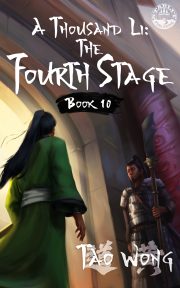The UK’s Society of Authors Issues Guidance on Ebooks
Posted by Victoria Strauss for Writer Beware
 Given Random House’s recent claim on electronic rights in older contracts, Macmillan’s recent announcement that it will be issuing “enhanced ebooks” simultaneously with some of its hardcover releases (and charging even more than for the hardcovers), and the thorny rights and payment issues raised by the rapid expansion of the ebook market, this seems an especially relevant piece of news: the UK’s Society of Authors has issued guidelines on ebook licensing and royalties for authors and agents.
Given Random House’s recent claim on electronic rights in older contracts, Macmillan’s recent announcement that it will be issuing “enhanced ebooks” simultaneously with some of its hardcover releases (and charging even more than for the hardcovers), and the thorny rights and payment issues raised by the rapid expansion of the ebook market, this seems an especially relevant piece of news: the UK’s Society of Authors has issued guidelines on ebook licensing and royalties for authors and agents.
The full text of the statement (which I found via the excellent TeleRead blog) can be seen here. The guidelines are below, and seem to me to make a great deal of sense.
1. Consider granting publishers a licence for 10 or 20 years, rather than for the full duration of copyright;
2. Limit any grant of ebook rights to the verbatim text. Wider electronic rights (e.g. for enhanced ebooks) should be negotiated separately and only if there is a definite intention to exploit the rights.
3. Royalties on ebooks should be much higher than they are. Until the economics and scale of the market become clearer, we consider that publishers should share ebook income equally with their authors. In any event we particularly encourage authors to try to negotiate steep increases to their royalties at agreed sales thresholds (as publishers recoup their set up costs). When a book has become well-established, it may be reasonable for the author’s share to rise to as much as 75%. On other forms of electronic access – e.g. rental and pay-per-view – authors should receive at least 50%, preferably nearer 85%, of the publisher’s receipts.
In suggesting these royalties we have taken into account that:
(a) publishers need to cover their overheads and make a profit; but
(b) the direct costs of originating, producing and keeping an ebook ‘in print’ are low (e.g. no printing costs); and
(c) the cost of making an ebook available through a third party distributor such as Amazon is minimal. Publishers’ warehousing and distribution costs are eliminated, as are losses from dealing with returns and unsold stock.
4. Authors should have the right to initiate a review of ebook royalty rates every 2 years and have the right to insist that royalties be increased to match those then prevailing in the trade.
5. When enhanced ebooks are developed, authors should have the right to approve – and be involved in – adaptations, abridgements, and dramatizations, as well as decisions on musical, interactive or other embellishments.
6. Contracts must allow authors to regain rights, if they so choose, once sales have all but ceased. When the work is POD and / or ebook only authors should be able to terminate their publishing contract on one month’s notice if sales in the home market in traditional and/or electronic form fall below an agreed level (or if the author’s income falls below an agreed amount) over 12 months, once the advance has been earned or more than, say, three years have passed since publication, whichever is the sooner.


